

The Internet is fighting back.
Today, hundreds of websites including some of the largest and most influential sites in the world are going black to fight the Stop Online Piracy Act and Protect IP Act. The two acts would give unprecedented power to the government of the United States to order blocking and takedown notices of foreign websites found to be infringing on copyrighted material such as movies and music. The drumbeat is loud and most of the U.S. technology industry has come out against SOPA/PIPA.
Today’s blackout is akin to a “sit-in” protest. It is extreme but non-violent and non-threatening and once the point is made the players will move on to other forms of protest. Google has blacked out its logo on its homepage, Wikipedia is denying (top picture) access to entries and Reddit is giving facts about SOPA and what you can do to stop it. What does a blacked out Internet look like? Take a look at the screenshot below.
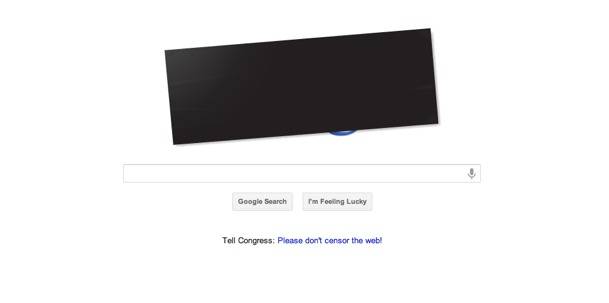
Google’s top lawyer, David Drummond, explains why the search giant is censoring its homepage and logo in a blog post on the company’s official blog.
Fighting online piracy is extremely important. We are investing a lot of time and money in that fight. Last year alone we acted on copyright takedown notices for more than 5 million webpages and invested more than $60 million in the fight against ads appearing on bad sites. And we think there is more that can be done here–like targeted and focused steps to cut off the money supply to foreign pirate sites. If you cut off the money flow, you cut the incentive to steal.
Because we think there’s a good way forward that doesn’t cause collateral damage to the web, we’re joining Wikipedia, Twitter, Tumblr, Reddit, Mozilla and other Internet companies in speaking out against SOPA and PIPA. And we’re asking you to sign a petition and join the millions who have already reached out to Congress through phone calls, letters and petitions asking them to rethink SOPA and PIPA.
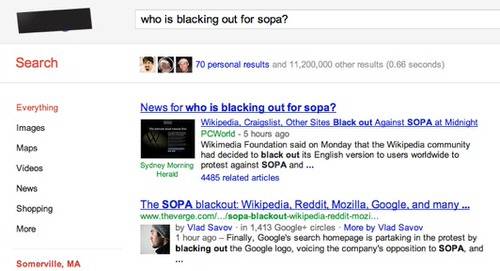
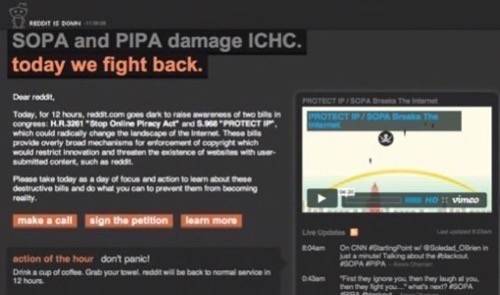
The community at Reddit has been the driving force behind choosing Jan. 18, 2012 as the day to black out the Internet. The initiative has been a success, dragging many of the top sites on the Web into the protest. Reddit has one of the most informative blackout pages with FAQ, video and calls to action.
Craig’s List

The original Web classifieds section has joined the protest with a link to an “About SOPA” page that helps educate users and gives easy action items for sending a letter to your Congressperson.
WordPress

The popular WordPress homepage that would normally show the top trending sites within the company’s domain shows a series of would-be websites that have been censored. When clicking on those sites, users are brought to this page urging users to write Congress top stop SOPA/PIPA.
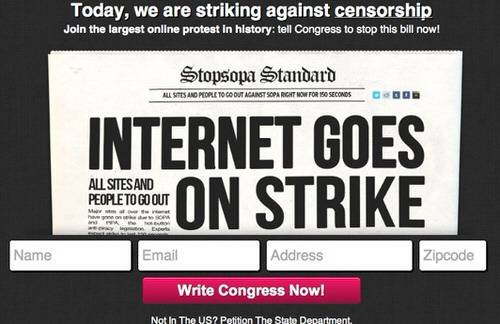
Mozilla
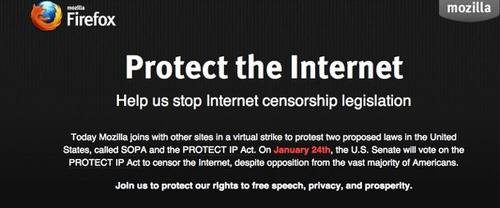
The open source organization and makers of the Firefox browser urge users to “protect the Internet.” The site features a prominent “take action now” button and gives reasons as to why Mozilla opposes SOPA/PIPA.

MoveOn.Org
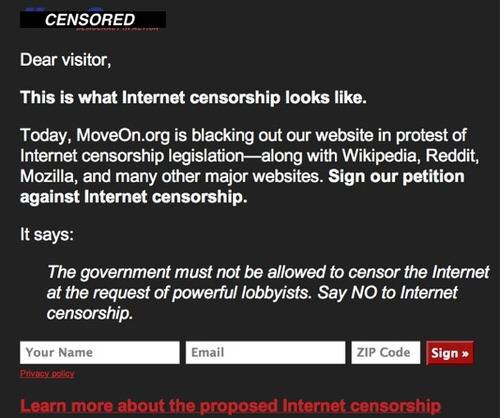
Political activists MoveOn have joined the fray. Its blackout is being paid for by its political action committee and is not endorsed by any party or candidate.
Media Organizations
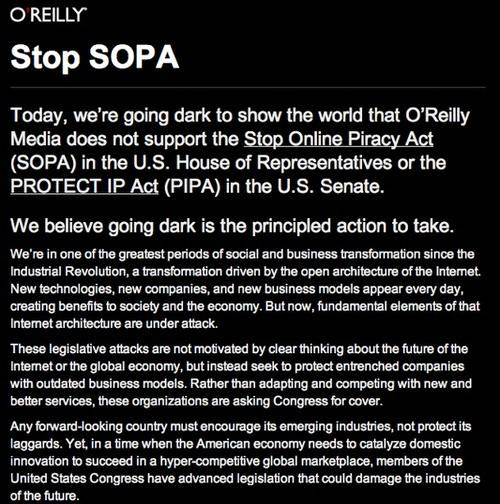
Of prominent media members and pundits, few have been as influential or outspoken as Tim O’Reilly, founder of O’Reilly Media. He has written multiple times over the last week about how SOPA/PIPA are dangerous bills and why he opposes them. While many news sites have not taken the extreme measure of actually shutting down today (ReadWriteWeb included), O’Reilly has blacked out his entire site to protest SOPA.

TechCrunch has edited its masthead to oppose censorship and help educate people on SOPA.
Perhaps the best and most humorous protest page comes from the comic gurus at TheOatmeal.com. It is hilarious and probably not safe for work. Then again, Wikipedia is apparently not safe for work today either, so give it a shot.
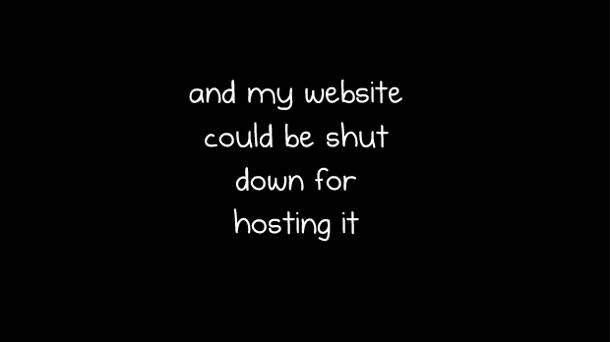
We at ReadWriteWeb are not blacking out today. We feel the community is better served if we report on the activity around the SOPA/PIPA protests and educate our readers about the bills. See our SOPA 2012 topic page for more information.
















